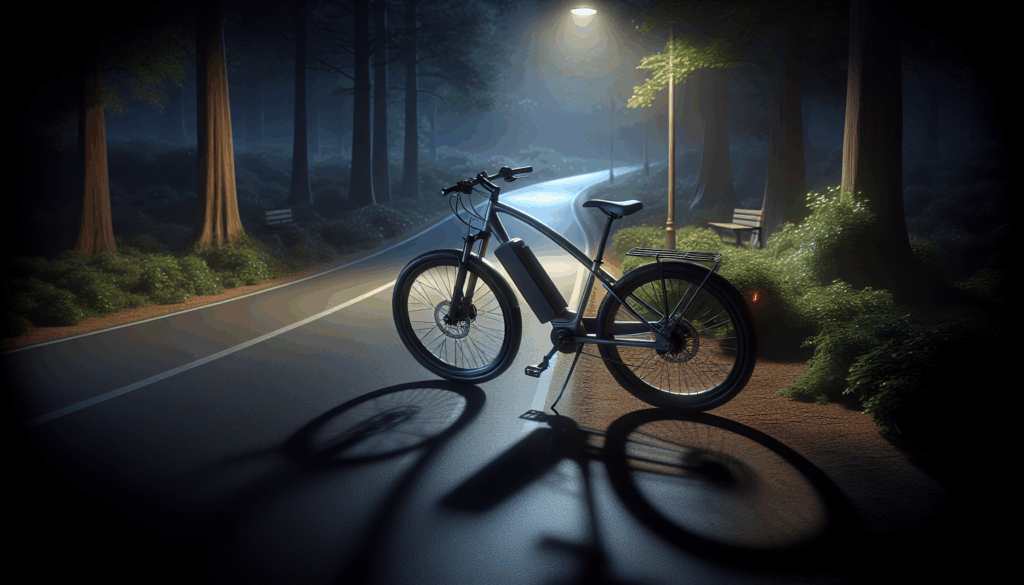
In today’s fast-paced world, many are seeking smarter, more cost-effective ways to navigate their daily commutes and recreational rides. Enter the electric bicycle, a sustainable transportation solution that not only promotes a healthier lifestyle but also offers significant financial advantages. With features like various assist modes and robust battery life, electric bicycles such as the ADO A20 Lite and ADO A20 Air provide practical alternatives to traditional vehicles. By investing in an electric bicycle, you’re not just purchasing a mode of transport; you’re setting yourself up for long-term savings on fuel, maintenance, and other commuting costs.
Understanding Electric Bicycles: What Makes Them a Smart Investment?
Electric bicycles have become one of the smartest mobility investments for commuters, leisure riders, and eco-conscious urban dwellers alike. By combining the familiar feel of a traditional bicycle with the power of an electric motor, e-bikes make daily travel faster, easier, and less tiring, especially for longer distances or uphill rides. They help riders save on fuel costs, parking fees, and even gym memberships, as they encourage healthy outdoor activity while replacing short car trips.
Beyond cost savings, an e-bike is also a low-maintenance, environmentally friendly choice. Compared to cars or motorcycles, they produce zero direct emissions and have a much smaller carbon footprint—supporting cleaner, greener cities. Advances in battery and motor technology mean modern electric bicycles deliver impressive range and reliability, with smart features like pedal assist levels, regenerative braking, and app integration for tracking rides or battery health.
Whether for commuting, running errands, or weekend adventures, an electric bicycle is a versatile tool that pays for itself over time by cutting transportation costs, saving time in traffic, and promoting a healthier lifestyle. Altogether, investing in an e-bike is not just about convenience—it’s a forward-thinking move toward sustainable, efficient, and enjoyable mobility.
Cost Analysis: Initial Investment vs Long-Term Savings
When considering the purchase of an electric bicycle, such as the ADO A20 Lite or ADO A20 Air, it’s essential to conduct a cost analysis that weighs the initial investment against potential long-term savings.
The ADO A20 Lite is priced at RM 3,699, while the slightly more advanced ADO A20 Air costs RM 4,899. Though the upfront costs may seem significant, investing in an electric bicycle can lead to substantial savings over time. By reducing the need for fuel, parking fees, and maintenance costs associated with traditional vehicles, commuters can effortlessly cut down their transportation expenses. Additionally, electric bicycles typically offer low operational costs, as they require minimal maintenance, and the electricity needed for charging is a fraction of fuel costs. This long-term perspective makes an electric bicycle a financially savvy investment.
Furthermore, the cost savings extend beyond just direct financial benefits. Through the use of electric bicycles, users can also enjoy healthier lifestyles and reduce medical expenses associated with sedentary living. With both models featuring a 36V 9.6Ah Li-ion battery capable of covering a range of approximately 60km, riders can easily navigate their daily commute without worrying about the costs associated with traditional means of transport. As cities increasingly promote cycling-friendly infrastructures, the initial investment in an electric bicycle becomes not just a smart choice economically but also an environmentally friendly one. This combination of financial savings, health benefits, and sustainability makes electric bicycles a compelling alternative to conventional transportation.
Reducing Transportation Costs: How Electric Bicycles Cut Down Travel Expenses
In an era where commuting expenses continually rise, electric bicycles present a savvy solution to cut down on transportation costs. With an electric bicycle like the ADO A20 Lite, equipped with a 36V 9.6Ah Li-ion battery offering a travel range of about 60km, riders can enjoy the convenience of a personal transport option that sidesteps spiraling fuel prices and public transport fees. Moreover, with maximum load capacities of up to 100kg and a competitive weight of just 16kg, these e-bikes provide a practical and efficient alternative for daily commuting. Investing in an electric bicycle means fewer stops at the gas station and a dramatic reduction in travel-related expenses, bolstering personal savings significantly over time.
Transitioning to electric bicycles not only mitigates transportation costs but also promotes an eco-friendly lifestyle, further enhancing their financial appeal. Consider the ADO A20 Air model, boasting advanced features such as a torque sensor and hydraulic brakes while maintaining similar specifications like a 60km range and a load capacity of 100kg. As urban areas grapple with the challenges of traffic congestion and pollution, electric bicycles emerge as a sustainable and cost-effective mode of transport. By choosing an electric bicycle, you’re not just saving on commuting; you’re investing in a healthier lifestyle and a cleaner planet, creating a ripple effect of savings that will benefit you well into the future.
Maintenance and Upkeep: Comparing Electric Bicycles to Traditional Vehicles
When it comes to maintenance and upkeep, electric bicycles stand out as a low-cost, low-hassle alternative to traditional vehicles like cars or motorcycles. Unlike cars, which require regular oil changes, complex engine servicing, and expensive parts, an electric bicycle has far fewer moving components and no internal combustion engine—meaning there’s less that can go wrong. Routine care for an e-bike mostly involves checking the brakes, tightening bolts, cleaning and lubricating the chain (if chain-driven), and making sure the battery is charged and stored properly.
In contrast, owning a car means budgeting for fuel, periodic engine checks, transmission servicing, exhaust system repairs, and often costly diagnostic work. Insurance and road tax costs for cars are also significantly higher than for e-bikes, which often don’t require special licensing or insurance at all, depending on local regulations.
Plus, parts like brake pads or tires for electric bicycles are generally cheaper and easier to replace, and tasks like adjusting gears or maintaining the battery can often be done at home with basic tools. Overall, the simplicity of electric bicycles translates to lower running costs, less time in the workshop, and more time on the road, making them an attractive, hassle-free investment for everyday transportation compared to traditional fuel-powered vehicles.

Health Benefits that Save You Money: Lower Healthcare Costs with Increased Physical Activity
Investing in an electric bicycle can yield substantial health benefits, which in turn can lead to significant savings on healthcare costs.
Regular physical activity, facilitated by the use of an electric bike, contributes to improved cardiovascular health, enhanced muscle strength, and better mental well-being. ADO A20 Lite and ADO A20 Air provide excellent options, encouraging riders to engage in daily exercise without the need for intense physical effort thanks to their electrical assist modes. This ability to tailor your workout intensity means that even beginners can find a pace that suits their fitness level, promoting a consistent exercise routine that could reduce the risk of chronic illnesses like obesity and type 2 diabetes, ultimately leading to lower medical expenses over time.
Moreover, as you spend more time riding an electric bicycle instead of driving, you’ll notice not only improved physical health but also enhanced mental clarity and reduced stress levels, which can translate directly into fewer visits to healthcare providers. The ADO line, with its user-friendly design and effective components like a cadence or torque sensor, makes it easier to remain active. By choosing an electric bicycle, you are not just improving your health but also positioning yourself to save significantly on healthcare costs in the long run, making it a smart investment for your future well-being.
Government Incentives and Subsidies for Electric Bicycle Buyers
Government incentives and subsidies for electric bicycle buyers have become an essential aspect of promoting eco-friendly transportation. Many countries and local governments are introducing programs designed to encourage the switch to electric bicycles as a means of reducing traffic congestion and lowering carbon footprints. These incentives may include tax credits, rebates, or grants that can significantly reduce the upfront costs of purchasing an electric bicycle, making options like the ADO A20 Lite or ADO A20 Air even more accessible. By taking advantage of these programs, you not only contribute to a cleaner environment but also enjoy financial benefits that can be a substantial part of your savings strategy.
Moreover, the appeal of electric bicycles goes beyond just initial savings. Many regions offer reduced registration fees and exemptions from certain taxes for eco-friendly vehicles. This can lead to further long-term savings for electric bicycle owners, as they may experience lower maintenance costs compared to traditional cars, and they’re also spared from rising fuel prices. With the ability to travel quieter, more efficiently, and economically—especially on models such as the ADO A20 Air with its hydraulic brakes and torque sensor—investing in an electric bicycle becomes a wise financial decision that pays dividends well into the future.
Environmental Impact: Saving on Fuel and Contributing to a Greener Planet
Investing in an electric bicycle isn’t just a savvy financial decision; it also plays a crucial role in reducing our environmental footprint.
By opting for an electric bike like the ADO A20 Lite or ADO A20 Air, you are choosing a sustainable mode of transport which helps to cut down on fuel consumption. With a range of about 60km on a single charge and a maximum load capacity of 100kg, these bikes provide an efficient alternative to motorized vehicles, allowing you to save on fuel costs while navigating urban environments with ease. This shift towards electric bicycles can significantly contribute to lower carbon emissions, which is vital in our efforts to combat climate change and foster a healthier planet for future generations.
Moreover, the long-term savings associated with electric bicycles extend beyond fuel. When you consider the costs of vehicle ownership—including insurance, maintenance, and parking—transitioning to an electric bike can lead to substantial financial benefits over time. With both ADO models priced competitively at RM 3,699 and RM 4,899 respectively, the initial investment is quickly offset by the savings accrued from not having to fuel a car or endure high maintenance fees. By choosing to pedal towards savings with an electric bicycle, you’re not only making a smart personal investment but also contributing positively to the environment.
Real-Life Examples: Success Stories of Electric Bicycle Owners Saving Money
Electric bicycles have become a popular choice for many commuters looking to save on transport costs. For instance, Jennifer, a resident of Kuala Lumpur, traded in her daily car commute for an ADO A20 Lite. She discovered that by opting for this lightweight electric bicycle, she could navigate through rush hour traffic effortlessly and avoid expensive parking fees. The A20 Lite, with its 36V 9.6Ah Li-ion battery providing a range of about 60km, allowed her to reach work in record time without incurring fuel expenses. In just a few months, Jennifer found that her monthly savings on transport were significant, covering the cost of the ADO bike in a fraction of a year.
Similarly, Mark, living in a suburban area, decided to purchase the ADO A20 Air for its improved features like the torque sensor and hydraulic brakes, which offered better performance. He realized that not only was he saving on gas but also on maintenance costs associated with his car. With an electric bicycle, Mark could enjoy a healthier lifestyle while effectively commuting to work, and he reported savings on fitness memberships as well, since he was now incorporating exercise into his daily routine. These success stories highlight how investing in electric bicycles like the ADO A20 series can lead to long-term financial benefits and a boost in personal health.

Final Thoughts on Electric Bicycles as a Smart Investment
In an era where sustainability and financial prudence go hand-in-hand, investing in an electric bicycle can truly redefine your commuting experience while saving you money. Models like the ADO A20 Lite and ADO A20 Air not only offer impressive specifications and features—such as a 36V 9.6Ah Li-ion battery that allows a range of about 60km—but also provide you with long-term savings in fuel and maintenance costs. The convenience of switching between different electrical assist modes enhances your ride, making it a practical choice for both casual cyclists and daily commuters. Adapting to an electric bicycle means less reliance on public transport or vehicles, leading to not just savings in money but also in time and environmental impact.
Additionally, opting for an electric bike, with its ability to tackle long distances and various terrains efficiently, encourages healthier lifestyle choices. With models ranging from the affordable ADO A20 Lite at RM 3,699 to the more advanced ADO A20 Air at RM 4,899, there’s an electric bicycle tailored to suit different budgets and needs. Investing in one of these bikes is an investment in your overall well-being and future finances, making it clear that the journey to both savings and health begins with electric mobility.
